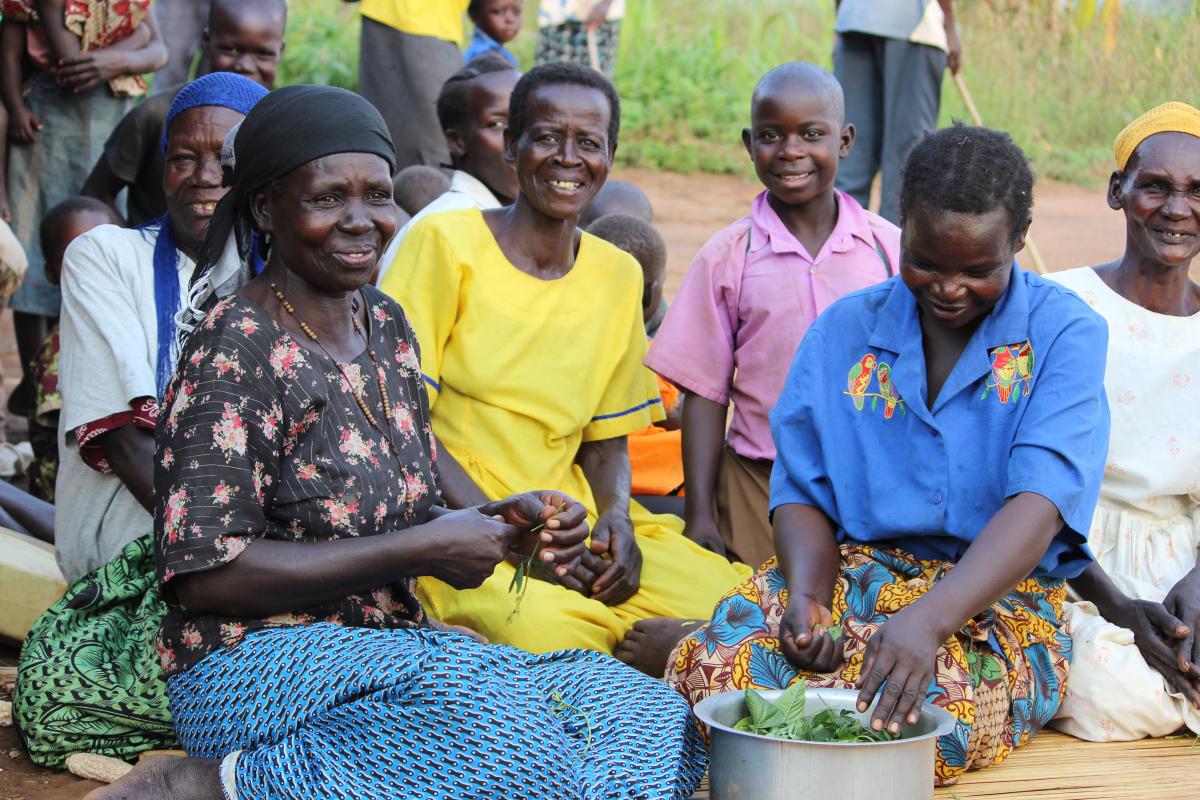Support programme for refugee settlements and host communities in northern Uganda to improve food security, nutrition and livelihoods
In a celebratory mood, small crowds of women, men and youth walk towards
Mungula primary school in Mungula 1 Refugee Settlement, one of the already
established camps in Adjumani district built to accommodate over 30,000 refugees
in northern Uganda, just across the border from South Sudan.
The occasion to which the crowd proceeds, is the launch of the Support
Programme for Refugee Settlements and Host Communities in Northern Uganda
(SPRS-NU) funded by the European Union Emergency Trust Fund (EUTF) and aimed at
supporting aspects of stability, contribute to better migration management as
well as addressing the root causes of destabilization, forced displacement and
irregular migration in the Horn of Africa.
The SPRS-NU inauguration happens at a time of the rapidly expanding refugee
influx in neighboring Uganda as a result of growing turmoil in South Sudan. The
current civil war in South Sudan began in December 2013. Although it was
triggered by disagreements within the government, its roots are historical and
relate to the failure to create inclusive modes of governance in the newly
independent country.
According to the UNHCR statistics (30th January 2017), of the 692,613 South
Sudan refugees in Uganda, 64% are children below the age of 18 while 86% of
this population are women and children whose critical needs must be addressed
as a human right.
The critical needs of these refugees after settlement include enhanced
livelihoods, provision of safe water and environmental sanitation conditions,
skills for labor market relevance, conflict management and accelerated learning
among others that are funded in this project by the EUTF to promote resilience,
economic and equal opportunities, security and development and addressing human
rights’ abuses.
In the presence of over 2,000 refugees and host communities, Hon. Hilary
Onek and the European Union (EU) Head of Cooperation in Uganda, Michelle
Labeeu, inaugurated the 10 million euro SPRS-NU project with planting of trees
at Mungula 1 refugee settlement in Itirikwa sub-county.
On this occasion, Minister Onek and the Head of Cooperation at the EU
Delegation to Uganda, Ms. Michelle Labeeu, planted trees in commemoration of
the inauguration of the SPRS-NU. The Ambassador of Belgium, Mr. Hugo Verbist, and
the Head of Austrian Development Agency, Mr. Günter Engelits, also planted trees
alongside refugees and host community members to signify a dignified
co-existence of refugees and host communities in the refugee districts of
northern Uganda including Adjumani, Arua and Kiryandongo.
The SPRS-NU is in line with the Refugee and Host Population Empowerment
(Re-HOPE) strategy and adheres to the Comprehensive Refugee Response Framework
(CRRF). This involvement also underlines the EU's commitment to work closely
not only with Government of the Republic of Uganda, but also with other
development partners for effective, sustainable and coordinated programmes for
the benefit of both host communities and refugees in Northern Uganda.
Officiating as Guest of Honor,
Minister Onek noted that Uganda has on its soil almost one million refugees and
more than 85% of the refugees currently arriving in Uganda are women
and children under the age of 18 who lack access to proper shelter, food and
health facilities, among other basic necessities.
In her address during the
launch of the programme, Ms. Michelle Labeeu commended Uganda’s exemplary
hospitality and progressive refugee policies and added that "Uganda is
not alone. Uganda can keep counting on the European Union's support for
handling such a challenging endeavor." In furtherance, Ms. Labeeu
announced the decision of the European Union to add further 10 million euro to
the programme allowing to expand interventions to other effected districts.
SPRS-NU is a three-year
programme implemented through three components: (i) Water and sanitation (WASH)
component, managed by the Austrian Development Agency (ADA); (ii) Skills
development & entrepreneurship training, managed by the Belgian Development Agency (BTC); and (iii) the Livelihoods, Conflict Management,
Educational and Knowledge components, managed by a NGO Consortium, led by the
Danish Refugee Council (DRC) consisting of the Save the Children, ZOA &
CEFORD.
Dernières actualité de ce projet
Pas d'actualité

